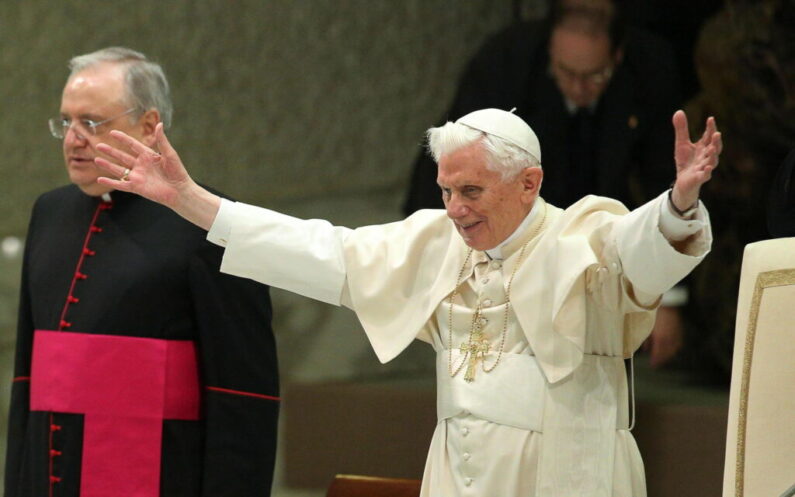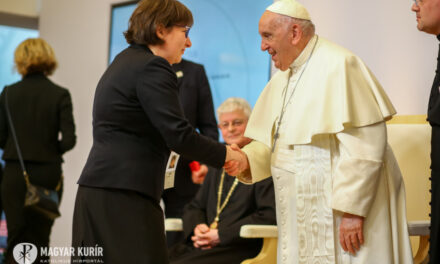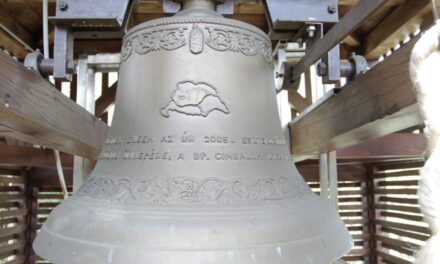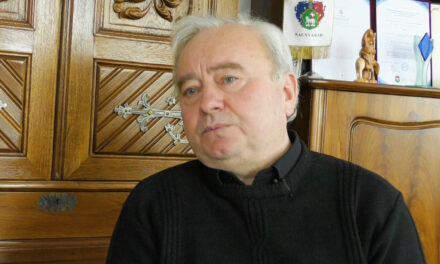Died XVI. Benedict is Pope Emeritus, who is referred to as a "conservative" Pope mainly by the liberal world. Conservative, of course, has a pejorative meaning for them, even though Pope Benedict insisted on 2,000-year-old eternal Christian values. Conservative values are eternal values, where the opposition between good and bad, true and false is clear, where there is absolute divine truth, where truth is not relative, as it is understood today in the modern liberal world.
Many Catholics considered him the true pope who showed direction in this confused postmodern world. The Hungarian churches also live in this so-called conservative approach, which was represented by Pope Benedict. Which only means sticking to the 2000-year-old Christian values, without any liberal deviations, which the world of today is predestined for.
Pope Benedict did not bow to the liberal world, he fought against the dictatorship of tolerance and relativism. He said God always comes first. The kingdom of God must be sought first. Jesus, "the way, the truth, and the life." He thought like this: if we keep this in mind, then how could there be many roads that all lead to the same place, as the philosophy of our postmodern age claims. He firmly stood by the fact that there is one true way and that is Jesus Christ. He rejected relativism, where there are many truths that are all equally valid. The Pope denied this, he believed in the absolute truth and proclaimed this in his books and theology.
His autobiography is the Jesus trilogy, which was published under the title Jesus of Nazareth. In it, he presents his theological research. Its purpose is to lead to faith. He talks about how Jesus lived and is still alive today. What the Church teaches comes from him, he wanted to pass this on. His book Végidí, which dissects the questions of death and eternal life, was also published. His book Faith, Justice, Tolerance, Christianity and World Religions is very significant. In it, he unmasks the liberal and postmodern lie that all religions are equal and all lead to the same place. In his interviews, he also confirmed his opinion that religions are not equal at all and are not equally useful for achieving salvation. If salvation can be achieved in another way, then why should a Christian stick to his faith and Christian morality? "If faith and salvation do not depend on each other, faith is less motivating," he said in an interview with Avverino. He further explained that "the solution offered by pluralist theories, according to which each religion is the way to salvation in its own way, is not acceptable." All this is clear guidance for Christians, since Buddhists do not believe in God, everything just happened by itself. Hinduism believes in many gods, and we read in the Bible that you shall not be an idolater, "you shall have no other gods before me", which is also in the Ten Commandments. Muslims worship Allah, who is not the same as our God, moreover, for them Jesus is not God and he did not die on the cross. All of these sensitive questions appear in his book and statements, which is a torch for Christians, but a scandal for the relativizing liberal world. In his book, he raises questions such as how cultures and religions meet and influence each other. Can Christians still say that the reason for people's salvation is Jesus Christ alone? Should we renounce the only truth in order to be modern and tolerant? At the same time, Pope Benedict sought dialogue with Jews, Muslims, and all Christian denominations. He participated in the first Catholic-Muslim Forum in Turkey.
Why was he even called a "conservative" pope? Not only because of the opposition to the liberal worldview that promotes the dictatorship of tolerance and relativism. Continued by II. The path started by Pope János Pál in the matter of sexuality, priestly celibacy, and church organization. He did not give in to the demands of modernity in matters of birth control, abortion, divorce, and homosexuality. Of course, he did not support the demands of the LGBTQ and homosexual lobby. Thus, conservative became a negative adjective during his papacy and emeritus status.
The debate at the Bavarian Catholic Academy in 2004 with Jürgen Habermas , a Marxist-oriented philosopher who embodies left-wing liberalism, is well known. Ratzinger at the time drew attention to the fact that the achievements of the liberal state, such as human rights and universal human freedom, are all Greek-Jewish-Christian heritage. At the same time , the main fault of today's libertarian liberal state is that it lacks moral foundations.
His favorite saints became known, such as St. Joseph, St. Augustine, St. Bonaventure . Among the female saints are the Virgin Mary, Saint Teresa of Avila, Little Saint Teresa, Mother Teresa. Mariology researchers know the intimate relationship with Mary, God's parent. Pope Benedict wrote: “Heaven is not a very distant and unknown place for us... We have a mother in heaven. The sky is open, heaven has a heart".
About Father Pio, who is so dear to us, he said: "Father Pio is one of those extraordinary people whom God sends to earth from time to time to convert people. The Hungarian people should be proud of King Saint István," said Pope Emeritus Benedict.
Could someone who lived 95 years and said goodbye to earthly life with the words "Lord, I love you" wish for a more beautiful death.
"For this righteous man, when he dwelt among them, seeing and hearing their evil deeds, tormented his righteous soul from day to day." (2 Peter 2:8)
According to the mystics:
"..he who sustained the Church with his prayer and silence returns to the Father's house: beloved XVI. We pray to the Divine Will to continue to intercede for us.”
"..he who prevented the appearance of the Antichrist has returned to the Father's house."
Author: Katalin Pók
(Header image: MTI/EPA/Alessandro Di Meo )













